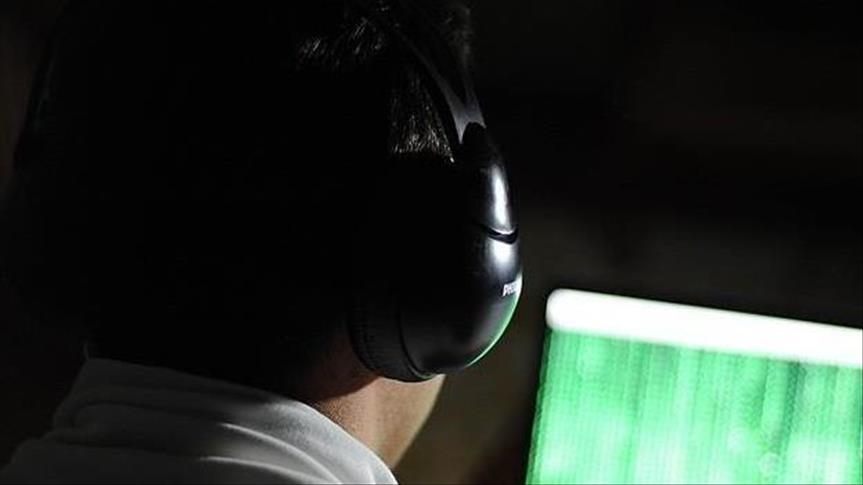Thai gov’t websites attacked after cyber law passed
Cyber attacks come after passage of bill critics consider threat to freedom of expression on Internet

By Max Constant
BANGKOK
Internet activist groups have been attacking Thai government websites since the country’s military-appointed parliament passed an amended computer crime law that critics consider a threat to freedom of expression.
Webpages for the Ministry of Defense and the National Security Agency remained inaccessible Tuesday morning, after at least six government websites -- including those of the ruling junta’s public page, the Ministry of Digital Economy and the National Security Council -- were brought down Monday.
The attacks were claimed by a local Internet activist group called the Civilians against Single Gateway Group that said it received help from international hacking collective Anonymous.
The military government’s “single Internet gateway” project -- which was discussed during a cabinet meeting earlier this year -- is aimed at having all computer data coming from overseas go through a junta-controlled entry point.
Thai Internet activists say the project will be implemented through the amended law passed Friday.
On Monday and Tuesday, some activists also tweeted images of pages allegedly taken from internal data of the websites of the Thai police and the National Intelligence Agency along with comments mocking the agencies for failing to protect their data.
“Thai police can’t guard their own data from #anonymous. Is your data safe with them?” read one of the tweets.
The president of the National Legislative Assembly that passed the law reacted to the attacks by describing the measures as “balanced”.
“I insist that the process of taking down computer information in many countries is weaker than in Thailand,” Pornpetch Wichitcholchai told the Khaosod news website.
“The National Legislative Assembly is willing to open discussions with those opposed about how the law is against rights and freedom,” he added.
The amended law was passed Friday after six hours of debate with 168 votes in favor and none against.
Just before the vote, a petition signed by more than 360,000 Thai netizens asking that the bill be revised was submitted to the assembly only to be ignored.
Among others, the law punishes people “entering forged or distorted computer data or false information into a computer system that is deemed to damage people, national security, public services or infrastructure or cause public panic”.
Those convicted of such offenses face a maximum jail term of five years and a maximum fine of $2,800.
Civil society groups and academics have criticized this section, describing it as “too broad in scope”, even though it no longer covers defamation -- as had been the case with an initial version of the law.
Kanathip Thongraweewong, a law professor at Saint John’s University in Bangkok, expressed doubt last week about whether opinions posted on the Internet “could cause disruption of public services such as a power blackout”.
“This clause is too sweeping and could be used to censor opinions. The government could cite this law to sue people who voiced their views,” he told the Bangkok Post.
Another controversial section involves the setting up a nine-member committee granted the power “to screen content which could breach public order or public morals even if that content does not violate the law”. The committee can request a court order to block and delete such content.
“This section gives the committee the power to make judgments instead of specifying what is forbidden. The definition of ‘public morals’ will depend on the interpretations of these five persons,” Thongraweewong underlined.
State authorities have defended the law as an improvement of a previous computer protection law passed in 2007.
The military government, which seized power in a 2014 coup, also denied that the new bill had anything to do with the “single Internet gateway” project.
Since the May 2014 coup, the military has arrested scores of people who posted online comments deemed disrespectful of the monarchy.
Anadolu Agency website contains only a portion of the news stories offered to subscribers in the AA News Broadcasting System (HAS), and in summarized form. Please contact us for subscription options.

